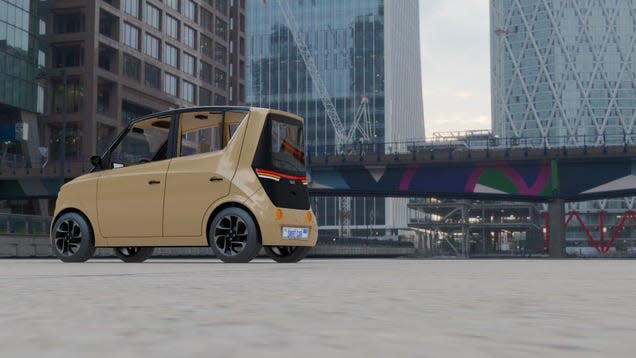Will India's most affordable electric car go the Tata Nano way?

India’s nascent electric vehicle (EV) industry has readied its “the most affordable” car. An attractive idea at first glance—but it also revives unfortunate memories of a similar tag attached to the Tata Nano14 years ago.
EaS-E, Mumbai-based PMV Electric’s first electric car, will be launched on Nov. 25 at an introductory price tag of 4.79 lakh rupees (around $5,800) for its first 10,000 customers. That price is attractive considering that the next cheapest alternative is Tata Motors’ Tiago EV, at a starting price of around Rs8.5 lakh (around $11,000).
Read more
How big is India’s cheapest electric car?
The EaS-E is perhaps the smallest electric car one can buy in India. It has two seats for adults and one for a toddler.
Exclusively designed for city use, the electric car, with an advanced lithium iron phosphate battery, can go up to 160 kilometers on a single full charge. It takes less than four hours to gain a full charge, even from a domestic power socket.
PMV Electric has received 6,000 pre-bookings, ahead of the car’s official launch on Nov. 25. Thus far, Tata’s Tiago holds the record for electric car pre-bookings, racking up 10,000 on a single day this October.
But Tata Motors’s own earlier debacle with the “cheapest car” tag hangs over the EaS-E’s prospects, even though unaffordability has been the EV segment’s biggest hurdle in India until now.
Tata Motors failed with the Nano
Ratan Tata, the former chief of Tata Sons, launched the Nano, a conventional fuel car, in January 2008, priced at Rs 1 lakh ($1,300).
The price tag whipped up an unprecedented frenzy in the auto industry, even globally. The company projected annual sales of up to 250,000 units.
Shortly after, however, it realized that the “cheapest car” tag had boomeranged on it. Sales sputtered. The Nano trudged along for a decade before production was shut down in 2018.
The Nano’s much-talked-about factory in Sanand, Gujarat, now produces the newer Tata models like Tiago and Tigor.
But the EaS-E need not share the Nano’s fate.
The future of the Indian car is now electric
Several experts told Quartz that, unlike traditional cars, the “cheapest” tag will work for EVs.
Affordability has been a major obstacle to ramping up EV sales in India till now. Price tags have been high “for a couple of reasons,” Ashwini Tiwary, CEO of Autobot India, a Pune-based EV tech firm, told Quartz earlier over email.
“One is due to the import of raw materials, and the other is due to expensive batteries. If we can take care of both the elements by manufacturing both of them domestically then the pricing factor could be solved,” Tiwary said.
The high taxes on completely built EV imports have prevented Tesla’s launch in India as well. In a market this sensitive to price, the Eas-E may prosper where the Nano could not.
More from Quartz
Sign up for Quartz's Newsletter. For the latest news, Facebook, Twitter and Instagram.

